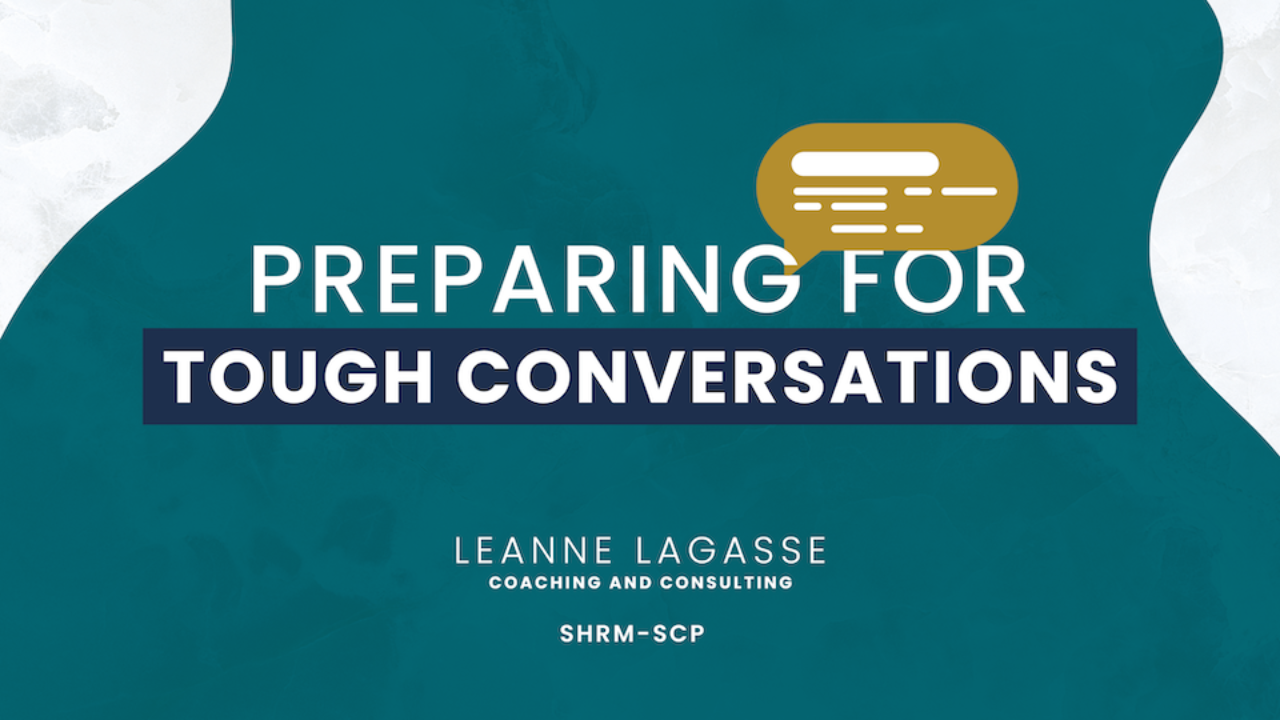Handling Difficult Conversations: 20 Questions to Ask Yourself

Difficult conversations are an inevitable part of people management.
Whether the topic is employee performance, productivity, or personal issues, being able to address a sensitive subject is an essential skill for leaders to have.
But it’s not very easy, is it? 😖
If emotions are running high – as they often do – the conversation can quickly derail and leave little room for progress. In hindsight, you might wonder if avoidance would have been a better choice, but unfortunately, that’s not the answer either.
Avoiding difficult conversations will only make matters worse. ❌
The good news is that with the right preparation, you can turn these tough, but necessary, talks into effective lines of communication that contribute to everyone’s growth and success.
If you’re a people leader, here are some questions you can ask to help you prepare for difficult workplace conversations.
Looking Inward
This might surprise you, but the best place to start is with some introspection. A great leader is not afraid to look inward to identify their blindspots, biases, and underlying emotions. Ask yourself these questions first.
- Why is this conversation important to have now? What is the cost of not having it right now?
- How might I have contributed to this becoming an issue? What can I own?
- What am I feeling about having this conversation? How am I feeling about this person? What’s underneath these feelings?
- Who can I talk to help me process the situation and get clarity on my objectives for the conversation?
Analyzing The Audience
The better you know the recipient of your message, the more prepared you can be for anything that might transpire. By analyzing your audience, you’ll be able to imagine the other person’s perspective, gain empathy, and identify goals and next steps.
- What do I know about this person? What motivates them? What matters to them? What are their talents and strengths? Their core values?
- How do I think this person is likely to react to the conversation? What are possible objections or challenges that they may raise?
- What’s my theory as to what’s happening and why? How might what I already know about them help explain the root of the problem?
- What are the concrete goals and next steps I desire for this person? How can I serve and honor this person throughout this conversation?
What’s My Argument
How well do you know your argument? If you haven’t taken some time to build a case for your concern, don’t skip this step. The goal here is not necessarily to “win,” but to communicate effectively and achieve positive outcomes.
- What is the specific issue or concern? What specific examples or evidence do I have to support my concerns?
- What is the specific purpose of this conversation? What specific outcomes am I hoping to achieve from the conversation?
- Why does this need coaching or correcting? What is the impact for our organization, for the team, and for them?
- What are the key messages I want to communicate in the conversation, both verbally and nonverbally? What messages do I NOT want to send?
Environment Matters, Too
This might seem like an insignificant detail, but it’s quite the opposite. When (and where) you have your difficult conversation matters. By identifying the right environment beforehand, you’ll set the proper tone and ensure a safe space for everyone involved.
- How can I create a safe and respectful environment for this conversation? When and where should we have it? When and how should I notify them?
- What resources or support do I need to successfully have this conversation? Should anyone else be consulted or looped in? What about our organizational policies?
- What is my plan for managing the conversation, including how to address any objections or challenges that may arise?
- What is my follow-up plan after the conversation to ensure that the necessary steps are taken to improve performance?
With these questions in mind, you should be ready to approach any difficult conversation with confidence. Remember, no matter how difficult they may seem, these “tough talks” will ultimately lead to growth and understanding for your team.
Get My Newsletter Delivered Right to Your Inbox!
Join thousands of People + Culture Leaders investing in their growth and development each week. 🙌🏻
No spam. No selling your info. Just great content.


